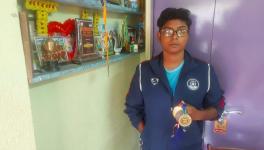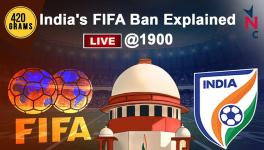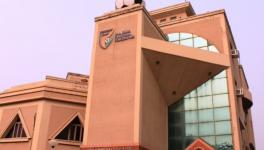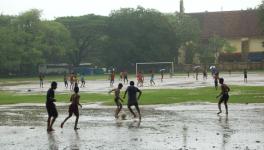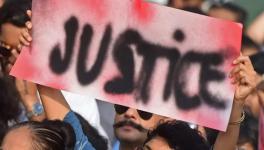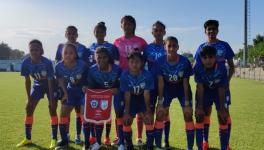Subhas Bhowmick Tribute: A Daring Striker With a Penchant for Big Occasions
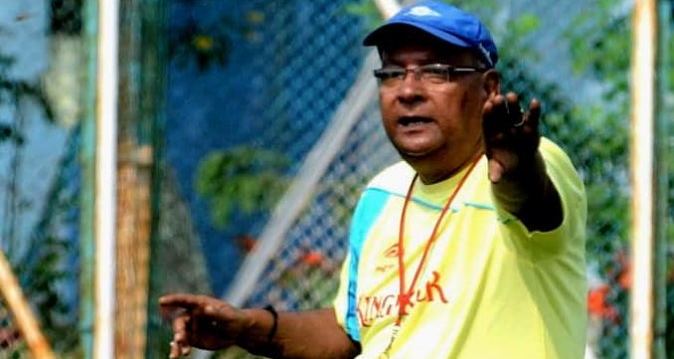
After his playing days that saw him score 165 goals in his 11 seasons for Mohun Bagan and East Bengal, besides many crucial strikes for the national side on big occasions, Subhas Bhowmick turned to a successful stint as a coach, becoming the only Indian to win the national league titles with two teams -- East Bengal and Churchill Brothers.
Led by redoubtable Inder Singh, Jalandhar’s Leaders Club were a crack side in the 1960s. In the 1968-69 season, Leaders were in great form and finished runners-up in both DCM Trophy in Delhi and Rovers Cup in Mumbai. Thereafter, they travelled to play the Shri Krishna Gold Cup in Patna as one of the favourites for the title.
In the first match, Leaders were pitted against Calcutta’s (now Kolkata) Rajasthan Club, a match the Punjab side were expected to win easily. To the surprise of the spectators, Rajasthan Club thrashed Leaders 4-2. A 19-year-old, Subhas Bhowmick, demolished the Leaders rearguard almost singlehandedly, with superb on-the-ball speed and an ability to bulldoze through the defence.
The strongly-built youngster, 19 then, didn’t go unnoticed. Next season, he was picked up by East Bengal followed by his national call. By 1970, Bhowmick was a permanent feature in India’s starting XI and a proud member of India’s 1970 Bangkok Asian Games bronze medal winning squad.
Also Read | AFC Women’s Asian Cup: India, Iran Play Out a Game of Misses
In Bangkok too, Bhowmick played a huge role behind India’s success. As luck would have been, India were pitted against hosts Thailand on the opening day of the Games. With 60,000 spectators rooting for the home side, India were down by two goals by the 31st minute. Coach GMH Basha and manager PK Banerjee feared it was all over, but not their two forwards, Mohammed Habib and Bhowmick, who led a spirited counter attack. The margin was reduced by Bhowmick little before the breather and he struck once again in the second half to snatch a point. India didn’t look back thereafter.
Bhowmick didn’t have a very long career in football. He had not even reached 30 when he quit playing after a few matches in 1979. Of the 13 seasons he played in Kolkata, six he spent in Mohun Bagan and five remarkable years in East Bengal. In the latter years, Bhowmick was more known as a fine coach, who guided East Bengal’s historic continental triumph in Asean Cup and became the only Indian coach to win the national league titles with two teams (East Bengal and Churchill Brothers).
Yet, looking back to his career, one can safely say that Bhowmick was a decent coach and probably the finest striker produced from the stable of Kolkata football after Chuni Goswami and PK Banerjee. That he scored 165 goals in his 11 seasons for Mohun Bagan and East Bengal is definitely an amazing figure, but more important was the fact that Bhowmick was a big-match footballer in true sense, who always enjoyed delivering on bigger platforms.
Though a right winger, Bhowmick was a prolific scorer because he was never shy of cutting in and taking a shot at goal. Not that he had excessive skills – he wasn’t a great schemer or an exceptional dribbler, but his extraordinary speed, tremendous dash, bullet-like shots and most importantly, fearless attitude, made him one of the most successful Indian strikers of the 1970s.
Some years ago, while talking to this reporter, PK Banerjee made a valuable observation. According to him, Kolkata football produced many quality players in the 1970s, but only two of them – defender Sudhir Karmakar and Subhas Bhowmick – were of international standard.
Also Read | BCCI Allocates Rs.3,494 crore For Legal, Arbitration and IT Contingencies
“In international matches, as a coach, I depended a lot on these two, because they had the ability to rise to the occasion. It is always important to take your game to the next level, which these two could always do,” said PK.
Bhowmick made his mark almost from the day he was baptized in international football at the 1970 Merdeka tournament in Jakarta. He played brilliantly as India finished third after losing to South Korea 3-2 in the semifinals. Next year, India met the Philippines in the first match and young Bhowmick came up with a stunning hat-trick as India scored a convincing 5-1 victory.
In domestic football Bhowmick had more than 200 goals to his credit. But again, delivering the goods in matches that really mattered was his USP – it made him the favourite of the coaches.
Old timers will recall his solo down the line run through the right and then a curling shot into the corner of the net in the 1973 IFA Shield final against North Korea’s mighty Pyongyang City Club. Before the final, Bhowmick was running a high temperature and took the pitch only after a couple of high-dose injections were pushed into him.
In the 1970s, in nine seasons between 1971-72 and 1978-79, Bengal won the National championship for the Santosh Trophy six times and the early part of it was the “Bhowmick show” on many occasions. Twice he was adjudged the player of the tournament – it should have easily gone to him in 1971-72 Madras (now Chennai) Nationals, too, but was denied the prize for reasons best known to the selectors.
Also Read | Portrait of the Artist as a Young Footballer - Indian Women’s Football History Special Series
But the drama that was played out in the 1975-76 Kozhikode Santosh Trophy was simply unprecedented. Bhowmick picked up a fight with a senior All India Football Federation (AIFF) official during one of India’s tours abroad and the issue reached a level where the official allegedly asked the selectors to drop Bhowmick from the list of probables.
The list was announced a day before the final. As it happened, after Bengal beat Karnataka to win the Santosh Trophy, Bhowmick was declared the “player of the tournament”. A fuming Bhowmick accepted the trophy from the chief guest and then turned towards the chairman of the selection committee (a legendary footballer of the 1960s), who was sitting in the stands, and began hurling choicest abuses on the senior footballer in full view of the public. His teammates and Bengal officials had to make lots of efforts to drag him away before it blew into a full-scale scandal.
Bhowmick had reasons to behave in this manner, but it didn’t make him any popular in the circle. This was one dark side of the fine footballer that did no good to him all through his life. In his playing days, he wasn’t a player who could be tamed easily. The trend remained the same even after he became a reputed coach. Despite his high success rate as a coach, Bhowmick would often court needless controversies which would do no good to him. As a player, he was too outspoken, sometimes beyond the widely accepted lines. It cost him the national captaincy and the Arjuna award. As a coach, he could lead the national side only once for a brief period.
The 1973-74 season in East Bengal was definitely his best as a footballer when he simply destroyed the rival defence match after match with unfailing regularity that prompted the Mohun Bagan fans to accuse him performing only for the red and yellow brigade. The football history of India, however, will always remember the crucial matches he played for Mohun Bagan; like the 1971 Rovers Cup final against Vasco Sports Club or the 1977 Durand Cup final against JCT. The trophies wouldn’t have entered the Mohun Bagan cabinet without Bhowmick’s splendid strikes in difficult situations.
Early on Saturday morning, Bhowmick breathed his last in a city nursing home in Kolkata at the age of 72. In his death, Indian football has lost a true star, who always shone brightly whenever he had the ball at his feet.
Get the latest reports & analysis with people's perspective on Protests, movements & deep analytical videos, discussions of the current affairs in your Telegram app. Subscribe to NewsClick's Telegram channel & get Real-Time updates on stories, as they get published on our website.









